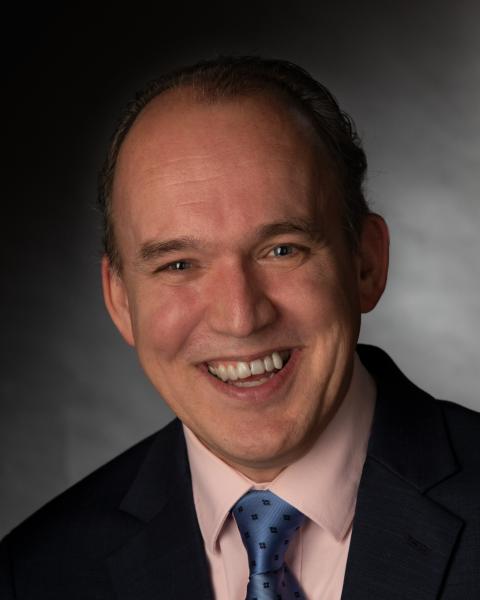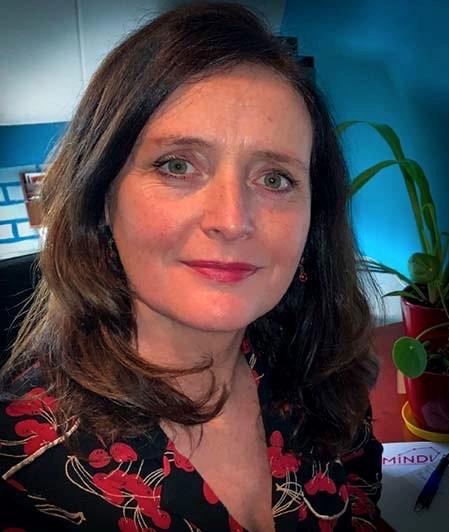MasterMinds projects marry science and business
Bringing together market, research, and education can speed up innovation and invigorate the economy. That is the theme connecting the MasterMinds projects. Project leader Max Louwerse and project manager Ilse Souhail talk about this unique collaboration. ‘The key is bringing worlds together.'
The Dutch government is investing one billion euros in regional innovation, and regional reinforcement initiatives may apply for so-termed Region Deals. MindLabs was one such initiative that did. The Tilburg innovation community for artificial intelligence (AI) – a collaboration between Tilburg University, other educational institutions, local governments, and the business community – raised EUR 2.5 million for five AI projects. Each of these projects, jointly christened MasterMinds, entails a scientific study at a company, with PhD students researching the application of such new technologies as virtual reality, serious gaming, data science, and avatars at these companies (see box). MasterMinds brings together many partners: nine companies, two government agencies, and, in addition to Tilburg University, two knowledge institutions in the province of North Brabant.
Wish list
The five projects were launched at the request of the City of Tilburg, says project leader Max Louwerse. Louwerse, Professor of Cognitive Psychology and AI, and co-founder of MindLabs, was asked to draw up a wish list of scientific AI projects. Louwerse: “I drafted ten proposals over a weekend, MindLabs selected five of them, and we presented those scientific issues to companies that might consider them relevant.” Louwerse points out that applicable AI is in great demand in the business community. “At interested companies we matched our questions with their needs. The key is bringing these worlds together in a joint research proposal.”

The success of this project hinges on intensive project management
Max Louwerse - MasterMinds project leader
Mutual goodwill
MasterMinds kicked off right after the 2020 summer break. Its initial stages were mostly concerned with putting out feelers, because the science and business communities have different ways of working, and it was crucial to foster mutual understanding. “The success of this project hinges on intensive project management,” Louwerse says. He and project manager Ilse Souhail meet with partners frequently, at least one every week. Souhail: “Our PhD student keeps us posted on progress, and the pivotal step then is to make scientific information ‘work’ for the workplace. And it works the other way, too: we try to find out what matters to the companies.” Souhail adds that it was important for each project to identify the direction the various partners wanted to take.
Louwerse believes success is conditional on the mutual goodwill of the scientists and the businesses. “The researchers should try their best to explain what it is they are doing. And the companies should look beyond their own questions; they are participating in research that could also be relevant to others.”
Text continues below the photo.

Unusual suspects
The companies participating in MasterMinds represent a broad corporate spectrum: young and old firms, small and large businesses, and operating in a variety of industries. Near-sightedness is a thing of the past, Louwerse believes. “Businesses are becoming increasingly interested in working together with unusual suspects. They are keen to venture beyond the boundaries of their own industry.” Louwerse fully expects findings of any one MasterMinds project to be used in others. “To give just one example, the VR technology we are researching at such maintenance contractors as Actemium could also be interesting for WPG Zwijsen publishers. I anticipate that these projects will generate a range of new initiatives and possibly even new start-ups. We aim to sow seeds that will grow into a wide variety of crops.”
Another appealing feature of MasterMinds is the participation of Fontys University of applied sciences and the Tilburg Regional Training Center (ROC Tilburg), both also co-founders of MindLabs. They sit in on projects and provide input. A broad collaboration of this kind between higher education and the business community is unique. To the companies, the involvement of regional training centers and universities of applied sciences is germane, because they are the breeding ground of future talents. Moreover, these educational institutions are naturally aligned with the workplace and are well placed to concretize research results. These institutions may in turn benefit from the opportunity this collaboration affords to strengthen their ties with the corporate sector.
Learning from each other works best when we can get together face to face
Ilse Souhail - MasterMinds project manager

AI in plain laguage
To Louwerse and Souhail, the opportunity to learn from the various partners is a major benefit of MasterMinds, and Souhail hopes project partners will soon be able to visit each other again. She herself was tremendously inspired by a visit to the Dutch Royal Air Force. “It beats on-screen contacts hands down. Learning from each other works best when we can get together face to face.” It enables the MasterMinds partners to take a look behind the scenes at meetings that are open to all participants. For companies it is an opportunity to learn about other new technologies being applied. Louwerse: “At such meetings we give chapter and verse in clear, non-scientific language. This helps businesses imagine the many uses to which these different technologies can be put and encourages them to wonder whether such technologies could work for them, too.”
Spotlight
Louwerse is perfectly happy to go the extra project management mile, because MasterMinds contributes to several of his ambitions as well as to some of Tilburg University. “It enables us to grow scientifically and to share our knowledge with businesses. And it allows us to show what we are capable of. We are putting ourselves in the spotlight as an AI university.”
The five MasterMinds research project
1. The Port of Rotterdam Authority (SmartPort) is hosting a study on transferring knowledge about decision-making regarding complex issues in the logistics industry. Using serious gaming they seek to transfer the knowledge of experienced workers to a new generation.
PhD student: Gianluca Guglielmo. Supervisors: Dr. Elisabeth Huis in ’t Veld and Dr. Michal Klincewizc.
2. At WPG Zwijsen educational publishers, the SpaceBuzz Foundation, and TimeAware research is being done into supporting educational methods using avatars. How instructive is using digital renditions of such historical characters as William of Orange or of a well-known astronaut like André Kuipers as teachers?
PhD student: Laduona Dai. Supervisors: Dr. Merel Jung and Dr. Marie Postma.
3. Interpolis and the City of Tilburg want to learn how to improve their burglary prevention advice using burglary risk data from their own and the City’s data sets.
PhD student: Niloy Purkait. Supervisors: Dr. Henry Brighton and Dr. Emmanuel Keuleers.
4. Actemium uses Virtual Reality to train its maintenance engineers, and Marel uses Augmented Reality glasses. Together with Castlab they want to compare the effect of these virtual trainings to traditional training methods.
PhD student: Mohammad Ali Mousavi. Supervisors: Dr. Drew Hendrickson and Dr. Wendy Powell.
5. The Dutch Royal Air Force and MultiSim have commissioned a study into the effectiveness of Virtual Reality practice sessions for pilots. Does digital simulation generate the same physical experience pilots have in real practice sessions in the air?
PhD student: Evy van Weelden. Supervisors: Dr. Maryam Alimardani and Dr. Travis Wiltshire.
Date of publication: 14 July 2021
